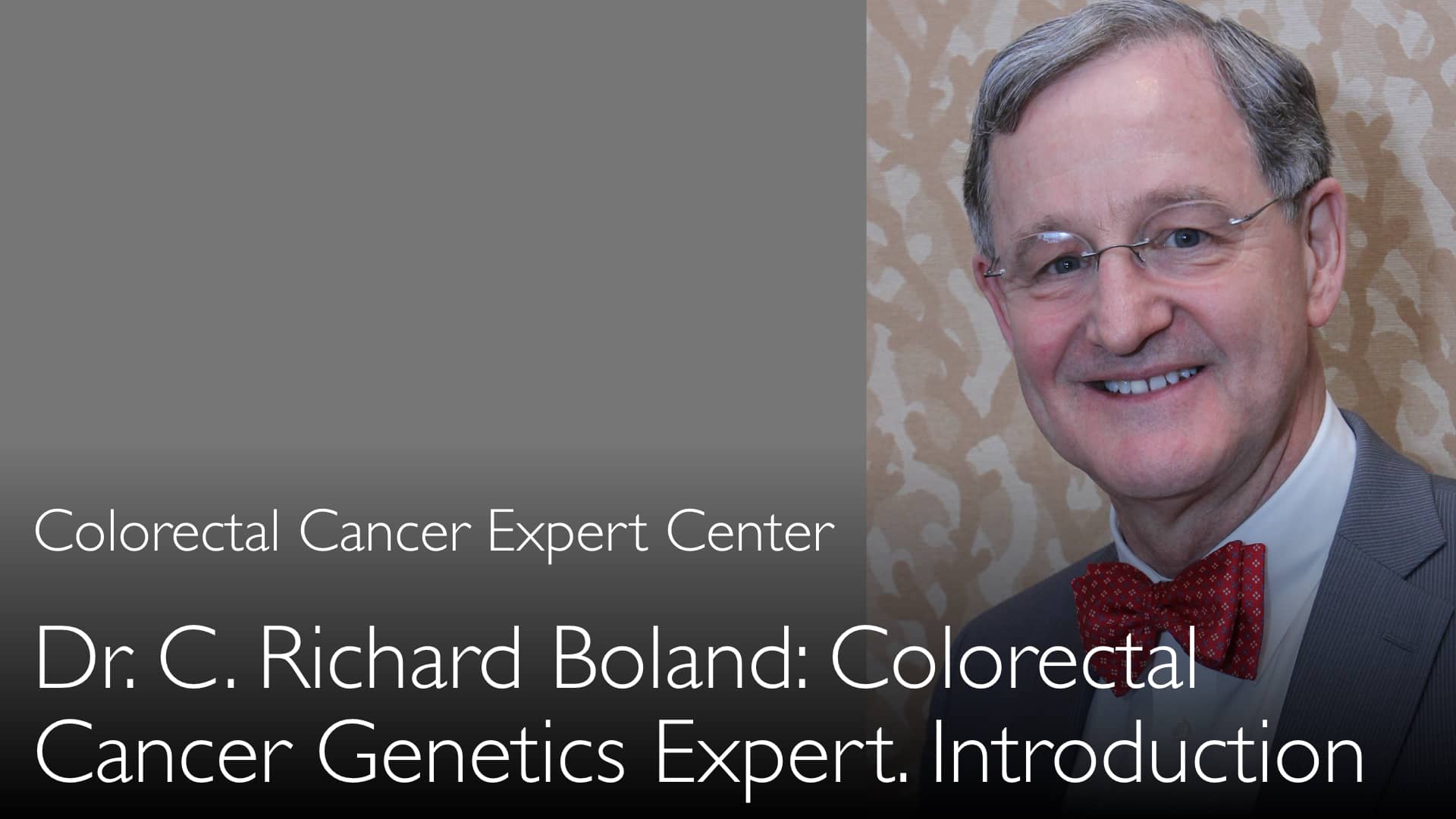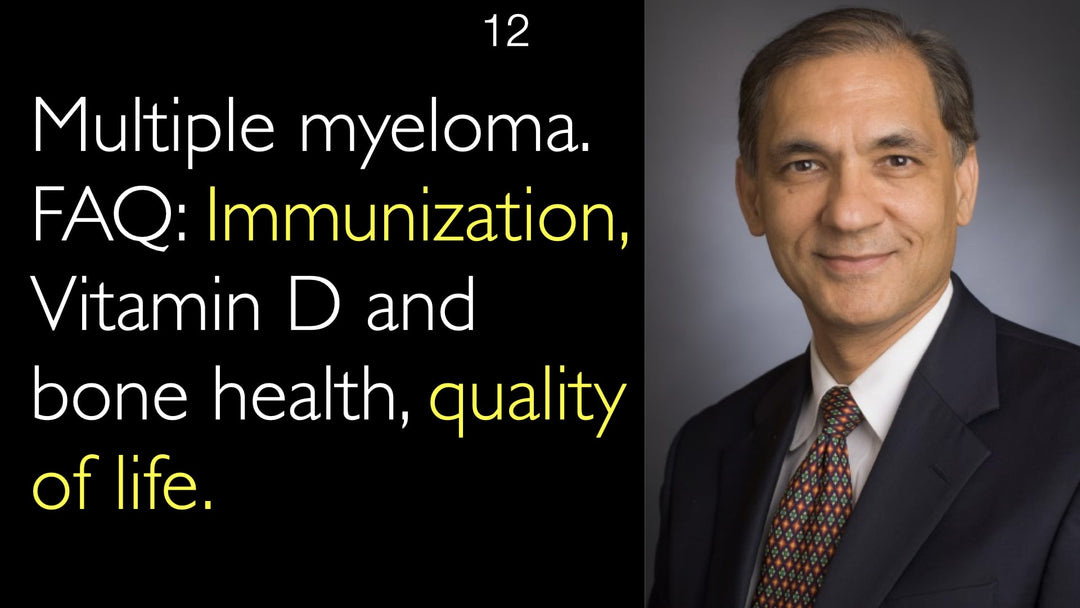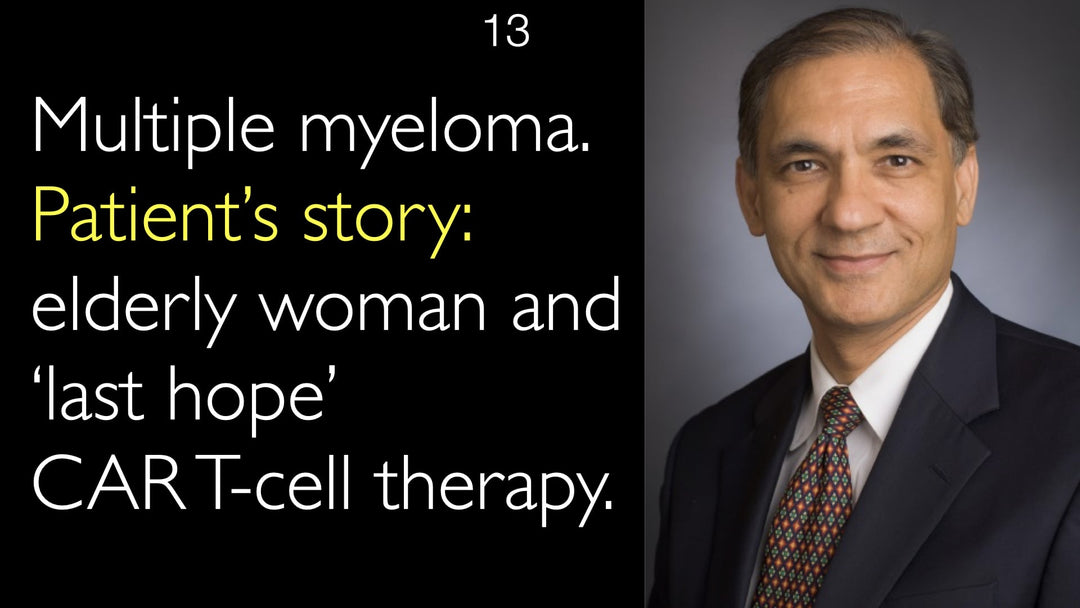O principal especialista em epigenética do câncer colorretal, Dr. C. Richard Boland, explica como os padrões de metilação do DNA e os níveis de microRNA atuam como biomarcadores eficazes para prever o prognóstico da doença e personalizar o tratamento. Suas pesquisas demonstram como as alterações epigenéticas influenciam o comportamento tumoral e como terapias direcionadas podem reverter a metilação anormal do DNA, melhorando os resultados para os pacientes.
Biomarcadores Epigenéticos no Câncer Colorretal: Metilação do DNA e Prognóstico por MicroRNA
Navegar para a Seção
- Como os MicroRNAs Regulam a Progressão do Câncer
- Metilação do DNA como Ferramenta Prognóstica
- Metilação do DNA Reversível e Potencial Terapêutico
- MicroRNAs na Terapia Personalizada do Câncer
- Influência Dietética nas Alterações Epigenéticas
- Direções Futuras na Pesquisa Epigenética do Câncer
- Transcrição Completa
Como os MicroRNAs Regulam a Progressão do Câncer
O Dr. C. Richard Boland descreve os microRNAs como reguladores essenciais da expressão gênica no câncer colorretal. Esses segmentos de RNA, com cerca de 20 bases, interagem com os RNAs mensageiros, controlando sua degradação e influenciando centenas de genes ao mesmo tempo. "Um único microRNA pode interagir com dezenas ou até centenas de RNAs mensageiros", explica o Dr. Boland, ressaltando seu impacto sistêmico no comportamento das células cancerosas.
Estudos mostram que padrões específicos de expressão de microRNA estão relacionados à agressividade do tumor e à resposta ao tratamento. Esses marcadores epigenéticos auxiliam os oncologistas a prever a evolução da doença e a escolher as terapias mais adequadas para cada paciente.
Metilação do DNA como Ferramenta Prognóstica
Os padrões de metilação do DNA funcionam como biomarcadores valiosos para o prognóstico do câncer colorretal. O Dr. Boland destaca que, ao contrário das mutações genéticas, essas alterações epigenéticas são dinâmicas e potencialmente reversíveis. "A metilação do DNA é diferente das mutações genéticas", observa ele, explicando como os grupos metil se ligam ao DNA sem modificar o código genético subjacente.
Padrões anormais de metilação podem silenciar genes supressores de tumor ou ativar oncogenes, influenciando diretamente o desenvolvimento do câncer. Atualmente, os médicos utilizam essas assinaturas epigenéticas para estratificar o risco do paciente e prever os resultados do tratamento com maior precisão.
Metilação do DNA Reversível e Potencial Terapêutico
O Dr. C. Richard Boland ressalta o potencial terapêutico de direcionar a metilação do DNA no câncer colorretal. "O processo de metilação do DNA pode ser manipulado", afirma ele, citando medicamentos existentes capazes de remover grupos metil do DNA. Embora os agentes desmetilantes atuais apresentem limitações devido à toxicidade, as pesquisas concentram-se no desenvolvimento de compostos mais seguros.
A natureza reversível das alterações epigenéticas oferece vantagens significativas em comparação com mutações genéticas permanentes. O Dr. Boland explica: "Se houver uma mutação pontual específica, a chance de corrigir o erro é praticamente inexistente", o que torna as terapias epigenéticas especialmente promissoras.
MicroRNAs na Terapia Personalizada do Câncer
O perfil de microRNA viabiliza abordagens de medicina de precisão para pacientes com câncer colorretal. A pesquisa do Dr. Boland demonstra como essas pequenas moléculas de RNA coordenam redes gênicas complexas que determinam o comportamento tumoral e a sensibilidade a medicamentos. "Os microRNAs podem regular a resposta a certos tratamentos", observa ele, enfatizando sua relevância clínica.
Ao analisar a assinatura única de microRNA de um paciente, os oncologistas podem prever quais terapias serão mais eficazes, evitando tratamentos com maior probabilidade de falha. Essa abordagem personalizada melhora os resultados e reduz efeitos colaterais desnecessários.
Influência Dietética nas Alterações Epigenéticas
Evidências recentes sugerem que fatores dietéticos podem influenciar os padrões de metilação do DNA no câncer colorretal. O Dr. Boland discute a possibilidade intrigante de "regulação dietética da metilação", mencionando pesquisas sobre compostos naturais que modificam com segurança os processos epigenéticos.
Embora as aplicações clínicas ainda estejam em desenvolvimento, essa descoberta abre novas perspectivas para a prevenção do câncer e terapia adjuvante. "Potencialmente, até a regulação dietética da metilação é possível", observa o Dr. Boland, destacando implicações que vão além do câncer colorretal.
Direções Futuras na Pesquisa Epigenética do Câncer
O Dr. C. Richard Boland enfatiza o potencial transformador da pesquisa epigenética em diversos tipos de câncer. A capacidade de reverter a metilação anormal do DNA e modular a atividade do microRNA representa uma mudança de paradigma na oncologia. "Essa é uma direção de pesquisa muito interessante, emocionante e importante", declara ele ao Dr. Anton Titov.
Estudos futuros focarão no desenvolvimento de terapias epigenéticas direcionadas com menos efeitos colaterais e na identificação de biomarcadores confiáveis para a detecção precoce do câncer. Esses avanços prometem melhorar as taxas de sobrevida e a qualidade de vida de pacientes com câncer colorretal em todo o mundo.
Transcrição Completa
Dr. Anton Titov: Como as alterações epigenéticas podem prever o prognóstico do câncer? Como o microRNA pode ajudar a selecionar a terapia personalizada para o câncer colorretal? Qual é o papel da metilação do DNA na progressão e tratamento do câncer de cólon?
Dr. C. Boland: O segundo grande avanço na epigenética do câncer foi reconhecer que alguns dos RNAs não codificantes em nosso núcleo produzem moléculas de RNA muito curtas chamadas microRNAs. Os microRNAs são transcritos e processados até segmentos de cerca de 20 bases, que formam uma alça. As extremidades da alça podem interagir com a região 3' não traduzida do RNA mensageiro, levando à sua degradação.
Dr. C. Boland: Essa interação é uma parte importante da regulação da expressão do RNA mensageiro. Passamos muito tempo entendendo o que ativa os RNAs mensageiros, mas, uma vez ativos, deve haver uma maneira de desativá-los. É assim que as células regulam seus diferentes processos metabólicos, com a expressão de microRNA desempenhando um papel crucial.
Dr. C. Boland: O interessante sobre os microRNAs é o reconhecimento complementar entre o microRNA e o RNA mensageiro. Um microRNA pode interagir com dezenas ou até centenas de RNAs mensageiros. Ativar ou desativar um microRNA pode orquestrar a expressão de muitos genes.
Dr. C. Boland: Os cânceres frequentemente apresentam padrões específicos de expressão de microRNA que nos ajudam a entender seu comportamento. Os microRNAs também podem regular a resposta a certos tratamentos.
Dr. Anton Titov: Além disso, a metilação do DNA não é permanente. Sua pesquisa mostra que a metilação do DNA pode ser influenciada?
Dr. C. Boland: Sim! Esse é um ponto muito importante. Se você tem uma mutação ou deleção gênica, é muito difícil reverter. Uma mutação pontual específica dificilmente será corrigida, e as deleções gênicas são permanentes. Embora a duplicação gênica possa teoricamente substituir um gene ausente, isso raramente ocorre.
Dr. C. Boland: A metilação do DNA é diferente. Alguns cânceres de cólon são impulsionados por excesso de metilação do DNA, mas esse processo é reversível. A DNA metiltransferase adiciona grupos metil, enquanto as enzimas desmetilantes podem removê-los. O aspecto intrigante é que a metilação do DNA pode ser manipulada.
Dr. C. Boland: Temos medicamentos em laboratório que podem desligar a metilação do DNA. Alguns foram usados em pacientes—são tóxicos, mas eficazes. Agora estamos explorando medicamentos, alimentos ou compostos naturais que podem manipular com segurança a metilação do DNA de maneiras previsíveis.
Dr. Anton Titov: Essa é uma direção de pesquisa muito interessante, emocionante e importante. Potencialmente, até a regulação dietética da metilação é possível. Isso pode ser relevante não apenas para o câncer colorretal, mas também para outros cânceres.
Dr. C. Boland: Sim, definitivamente!








